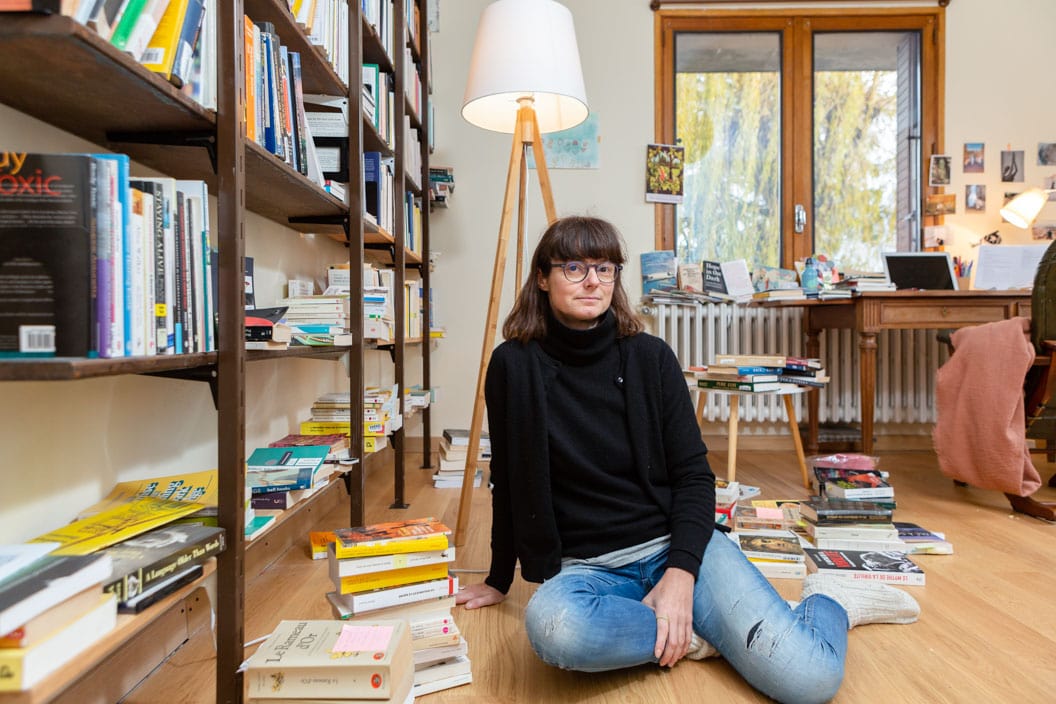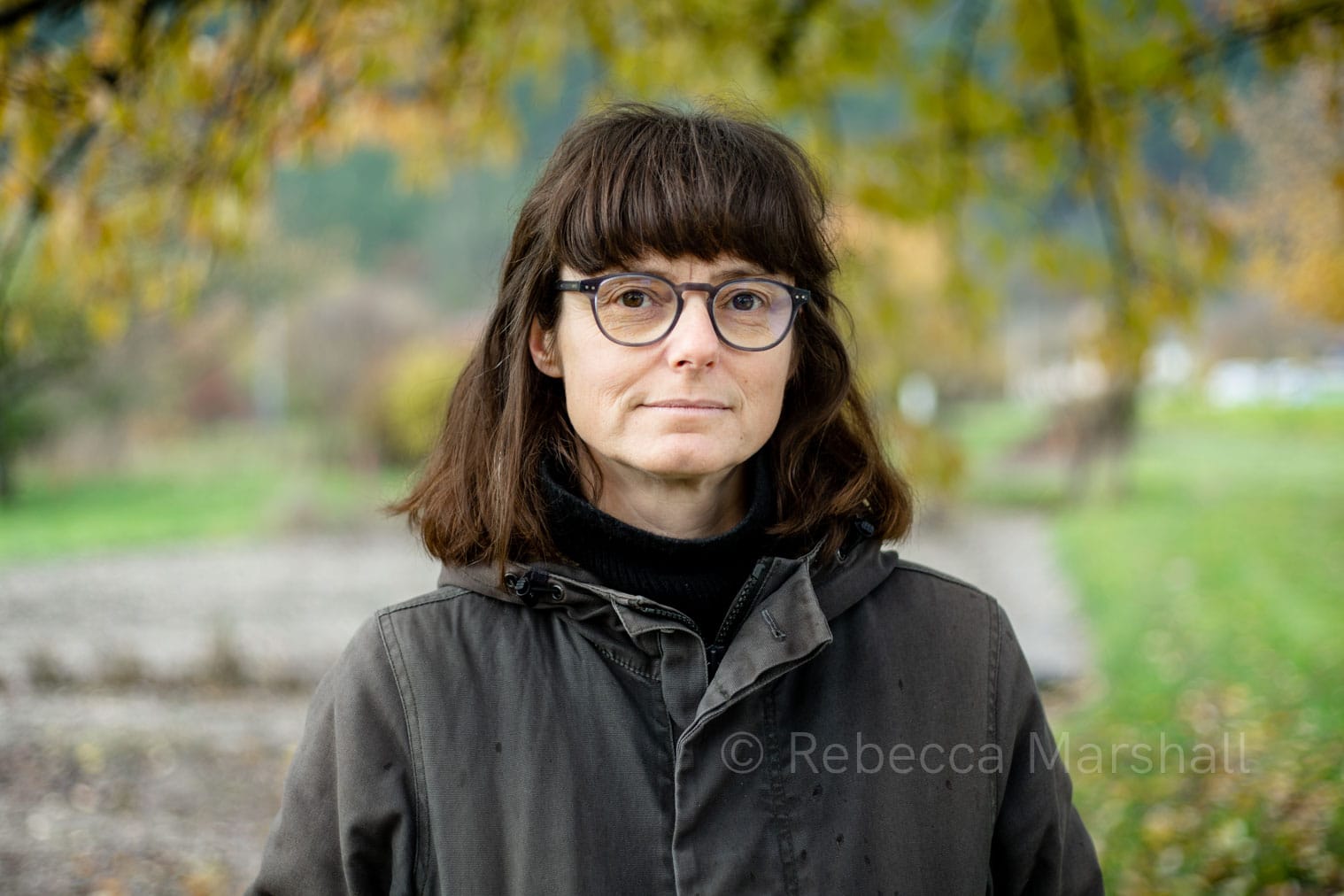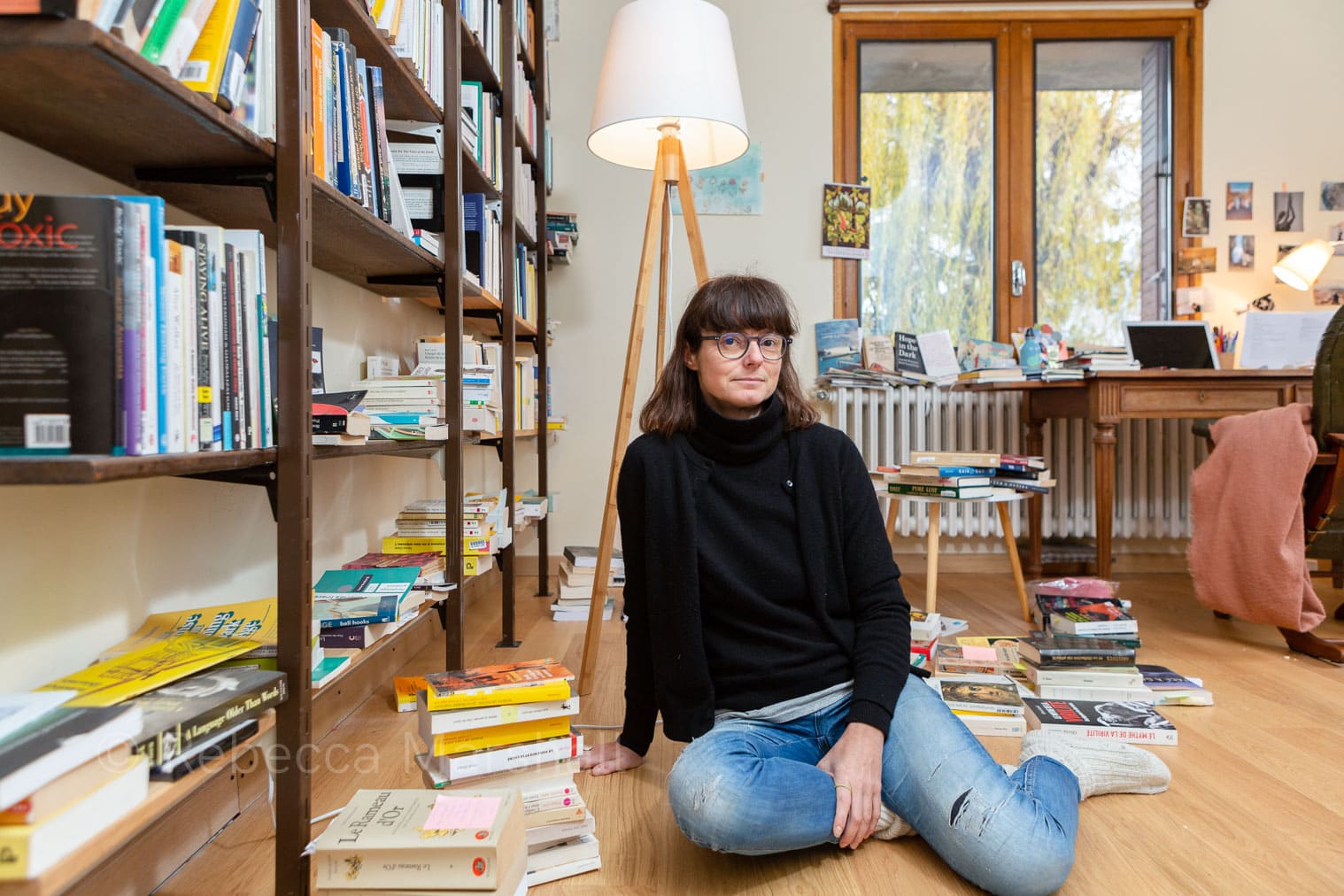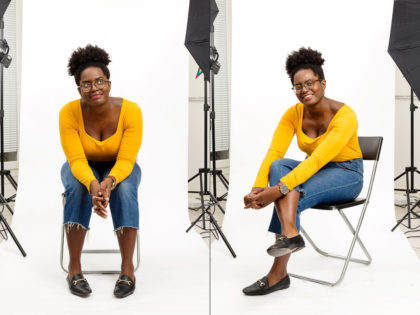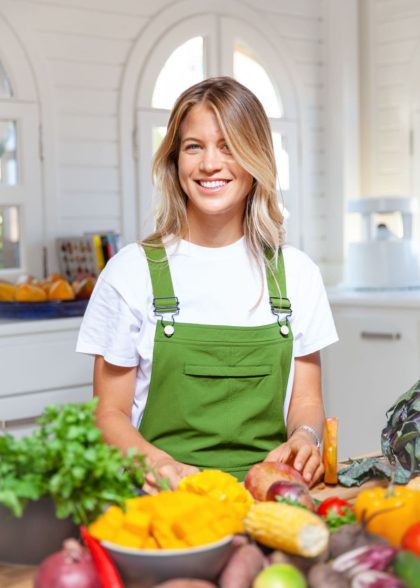“We’d like to send you to Die”. Put like that, the assignment hadn’t sounded very enticing, and the road to Die (fortunately, in this case, the name of a small town in the South of France) was long and winding. It was winter, and the foothills of the French Alps were particularly bleak and brown, when Annika Joeres and I, environmental journalist and photographer, crossed Provence to make a portrait of Émilie Hache. We left Nice 4 ½ hours before our appointment, yet freezing rain slowed our progress and we risked the displeasure of France’s foremost researcher in ecofeminism (who’d stressed how busy her schedule was) by arriving in Die a little late.
A long way to go to Die
I photographed a professional feminist (see my portrait of Reni Eddo-Lodge in Marseille) some time ago, and an organic entrepreneur (a female trailblazer in a man’s world) recently, but the term ‘ecofeminism’ was new to me. A movement that saw daylight in the USA in the 80s (even though the term écoféminisme was actually coined a decade earlier in France), it refers to a branch of feminism that looks at environmental issues through a feminist lens. Ecofeminists believe that capitalism and industry are reflections of patriarchal values, that the same power structures restricting the autonomy of women are also responsible for factory farming and that climate change affects women more than men.
All of us involved in this portrait assignment were women. Had Die Zeit chosen a female writer and photographer on purpose, and if so, was it an example of capitalist, patriarchal values? I wondered, in a feminist sort of way. As the road stretched ahead, Annika and I had plenty of time to discuss the links between the destruction of nature and the oppression of women. It was a long drive.
Memories of sun and bubbles
Obscure though the town of Die may be, I had, in fact, been sent there once before, for Stern magazine. That trip had been quite different, a travel photographer assignment for a feature on the the production of lavender oil. Writer Stefan and I had had nothing more intellectual to consider than what the local farmhands were saying as they carried lavender into the distillery (their slightly slurred speech and vacant smiles apparently a result of happy lavender intoxication), how to climb up into the cab of a moving combine harvester, and which restaurant to choose for dinner. The skies had been a deep blue and the South of France sun fierce. Our reportage had introduced us to the makers of the town’s best-known export, Clairette de Die, and the few bottles of this sparkling wine that I’d taken back to the French Riviera had kept my memories of Die bubbly and summery.
Vegan cakes and washable nappies
This time, however, we arrived in an unrecognisable grey, cold Die, and headed directly to the outskirts, where Émilie received us cordially at her house. If irritation had been caused by our late arrival, she kept it well hidden. As she showed us around her garden (appropriately large and overgrown), Émilie, without any prompting, began to tell us about her work in ecofeminism. Small talk didn’t seem to be her thing, and I was glad I’d genned up on the topic.
Émilie Hache is small, unassuming in appearance and softly spoken, yet she exudes intensity. She was perfectly at home under several layers of jumpers, ripped jeans and chunky woollen socks, and had no qualms about being photographed that way. Ecofeminists used to be ridiculed by the public and their peers, she said, and there was no research funding for her work at all when she started. It bothers her that instead of being taken seriously, ecofeminism is still often associated with clichés, like festivals with catchy new-age titles where vegan cakes and washable nappies take centre stage. “We have to fight this understanding of ecofeminism,” she said.
Ecofeminist hot stuff
However, she explained that the recent #metoo movement and publicity generated by the likes of Greta Thuneberg has prompted closer links between the environmentalists and women’s rights advocates, pushing ecofeminism firmly onto the agenda. Today, people are listening; today Émilie Hache is hot stuff. She may be less inclined to demonstrate or court the media to increase her profile, than to bring ideas forward in academic, philosophical circles, but Émilie is in demand as a speaker, teacher and writer. Her most recent publication, the anthology ‘Reclaim’, is a collection of texts by selected prominent ecofeminists, and she certainly isn’t short of reading material. Spilling from bookshelves, piled on the desk and spread over the floor of her home office, books and journals (most of which had Post-it note markers peeping out of them) gave a good idea of what Émilie might spend her winter evenings doing – and offered an interesting portrait opportunity.
Wellies and witches
Once the interview began in earnest, I headed off to do a recce for the photographs. Émilie had given me directions to Die’s allotments, and in their unkempt, natural winter state, the gardens seemed an appropriate location for the portrait of an ecofeminist.
By the time she showed up (an anorak and wellington boots had been added to her portrait-ready outfit), Émilie seemed infinitely more relaxed. She’d enjoyed taking to Annika, who now was doubling as photographer’s assistant, and when I had the pictures I needed, she suggested we all go for lunch together. The conversation continued to flow on a range of topics, from witches and dualism to the body of Christ, as I chomped away on my (organic, vegan, locally grown) meal. However, after polishing off the last mouthfuls of our quinoa-based dessert, Annika and I could delay our departure from Die no longer.
On the way out of town, my writer friend expressed some surprise when I abruptly pulled off the road and swung into a small carpark. Yet I had one last thing to do in Die. It would only take a few short minutes to pick up another box of Clairette before we headed back to the Côte d’Azur.
> See Portrait portfolio
